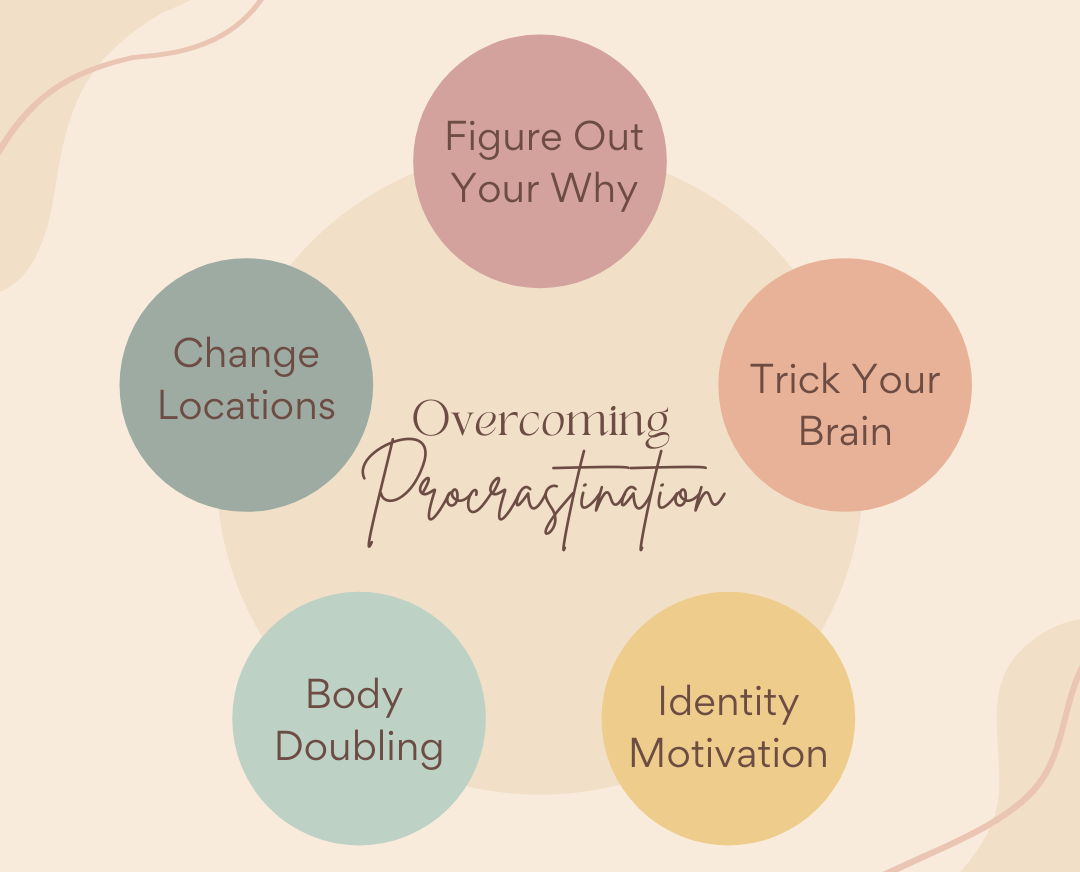Procrastination: What Is It and How to Overcome It
Procrastination is a word that most of us are familiar with, and many of us have experienced at some point in our lives. It's the art of delaying tasks and putting things off until the last possible moment. While procrastination can be a temporary relief from immediate stress, it often leads to even more significant stress, missed opportunities, and unmet goals. In this blog, we will explore what procrastination is, its underlying causes, and effective strategies to overcome it.

Introduction
Procrastination is a word that most of us are familiar with, and many of us have experienced at some point in our lives. It's the art of delaying tasks and putting things off until the last possible moment. While procrastination can be a temporary relief from immediate stress, it often leads to even more significant stress, missed opportunities, and unmet goals. In this blog, we will explore what procrastination is, its underlying causes, and effective strategies to overcome it.
Defining Procrastination
Procrastination is the act of postponing or delaying tasks or actions that need to be completed. It's not just about being lazy or disorganized; it's a complex behavior rooted in psychology, emotions, and habits. People procrastinate for various reasons, and it's crucial to understand the underlying causes to effectively combat it.
Causes of Procrastination
- Fear of Failure: One of the most common reasons people procrastinate is the fear of not meeting their own or others' expectations. This fear of failure can paralyze them and lead to avoidance of tasks.
- Lack of Motivation: When a task doesn't align with your goals, interests, or values, it can be challenging to find the motivation to get started. The absence of a clear purpose can lead to procrastination.
- Poor Time Management: Many individuals struggle with managing their time effectively, leading to procrastination as they underestimate how long a task will take or overcommit themselves.
- Perfectionism: Striving for perfection can often lead to procrastination, as individuals delay starting tasks until they believe they can execute them flawlessly.
- Distractions: In today's hyper-connected world, distractions from social media, emails, and other sources can be overwhelming and hinder productivity.
Overcoming Procrastination
Now that we have a better understanding of procrastination and its causes, let's explore effective strategies to overcome this habit:
- Set Clear Goals: Clearly defined goals give you a sense of purpose and motivation. Break down your tasks into smaller, manageable steps, making it easier to get started.
- Prioritize Tasks: Identify and focus on the most important tasks first. Use techniques like the Eisenhower Matrix, which categorizes tasks into urgent, important, non-urgent, and non-important, to help you prioritize effectively.
- Manage Time Wisely: Create a schedule or to-do list to manage your time efficiently. Set specific time blocks for tasks, and avoid multitasking, which can be a major source of procrastination.
- Overcome Perfectionism: Understand that perfection is rarely achievable, and that trying to achieve it can be counterproductive. Accept that it's okay for things to be good enough, and learn from your mistakes.
- Minimize Distractions: Identify your main distractions and take steps to minimize them. This might involve turning off notifications, using website blockers, or creating a dedicated workspace.
- Break Tasks into Smaller Steps: When a task feels overwhelming, break it into smaller, more manageable components. Completing these smaller steps can boost your confidence and motivation.
- Utilize the Pomodoro Technique: This time management technique involves working for a set period (usually 25 minutes) and then taking a short break. Repeat this cycle to maintain focus and productivity.
- Find Accountability: Share your goals and progress with a friend, family member, or colleague. Accountability can help keep you on track and motivate you to avoid procrastination.
Conclusion
Procrastination is a common behavior that affects many aspects of our lives, from work and school to personal goals and well-being. By understanding the underlying causes and employing effective strategies, you can overcome procrastination and unlock your full potential. Remember that overcoming procrastination is a gradual process, so be patient with yourself as you work towards more productive and fulfilling days.
